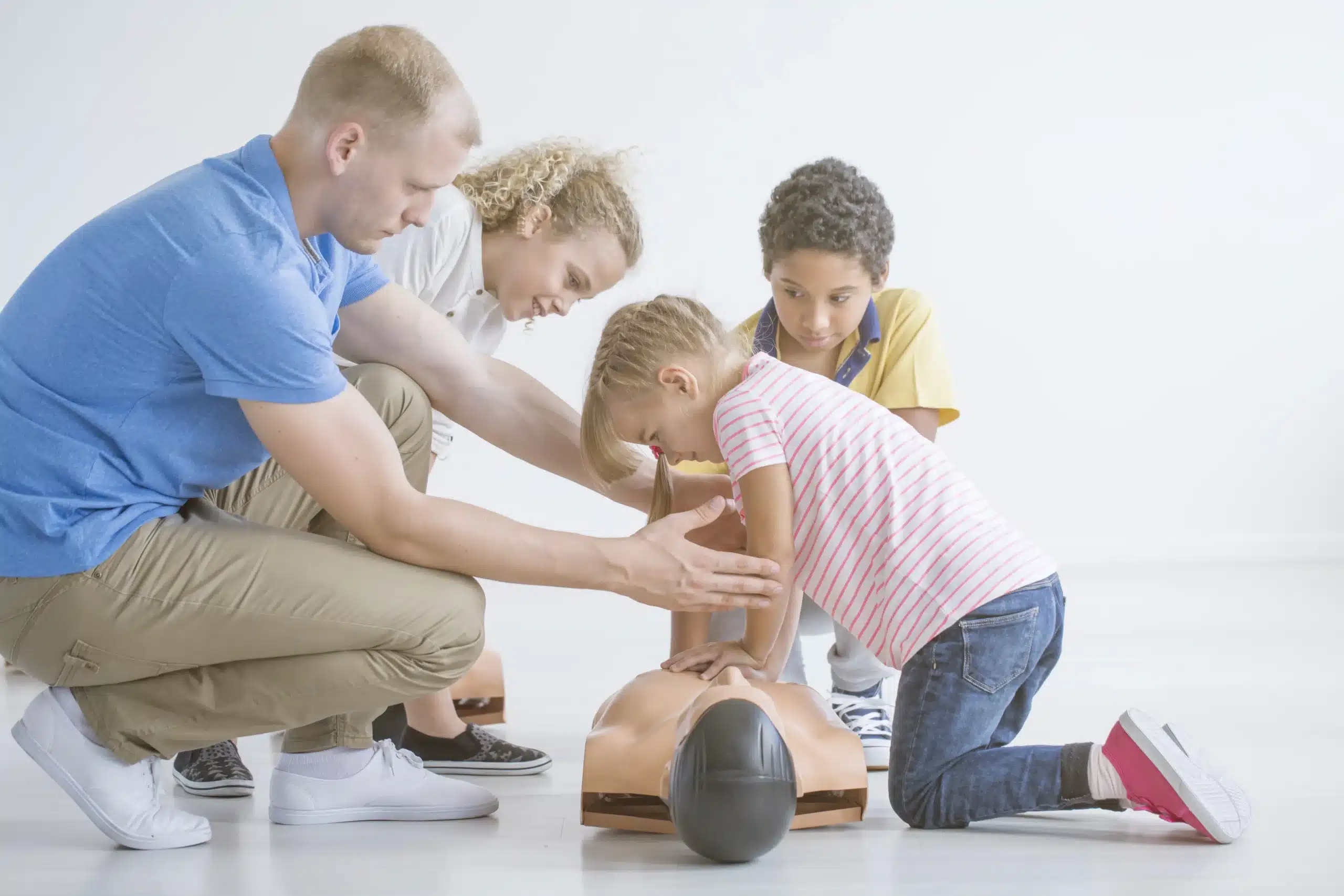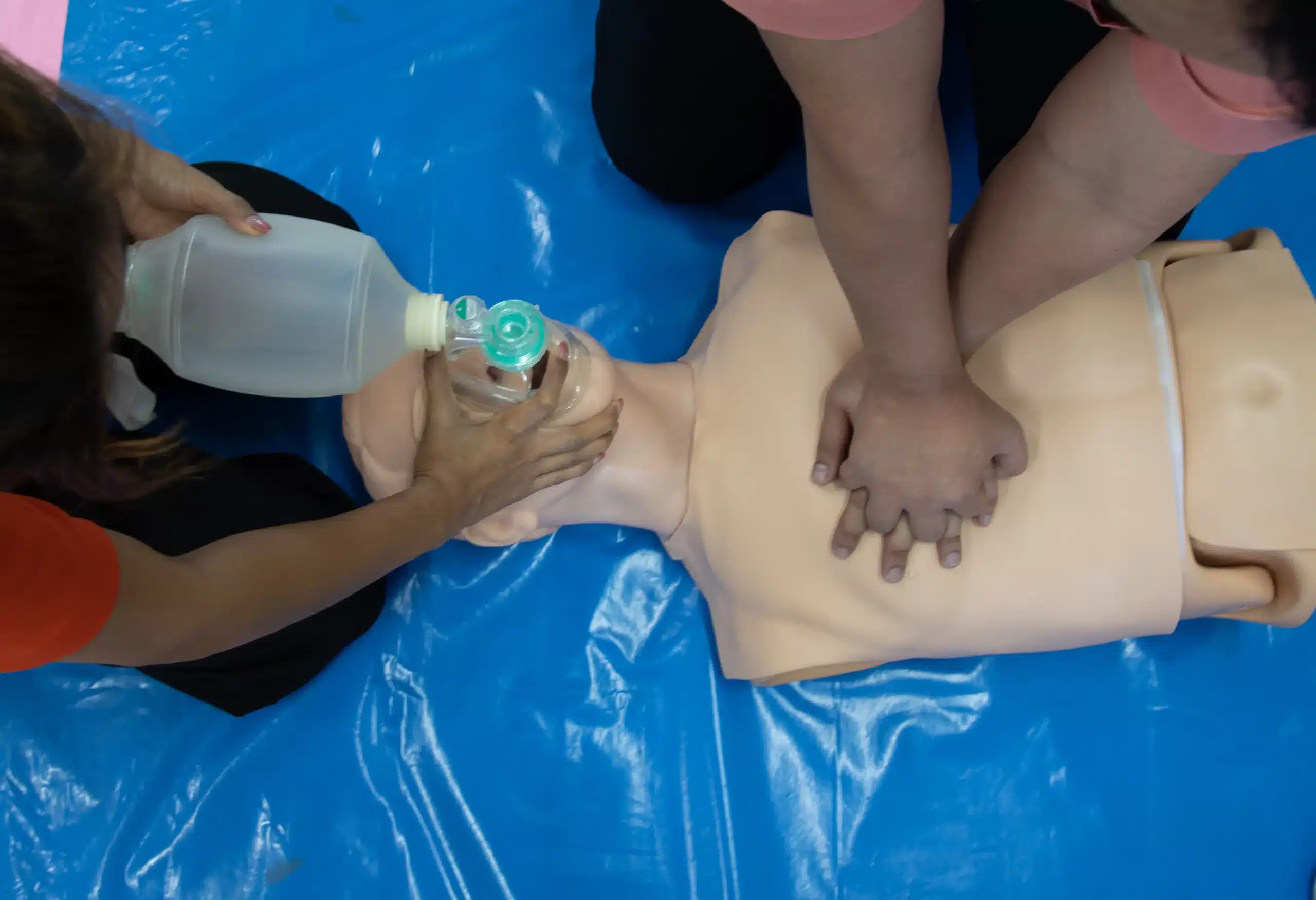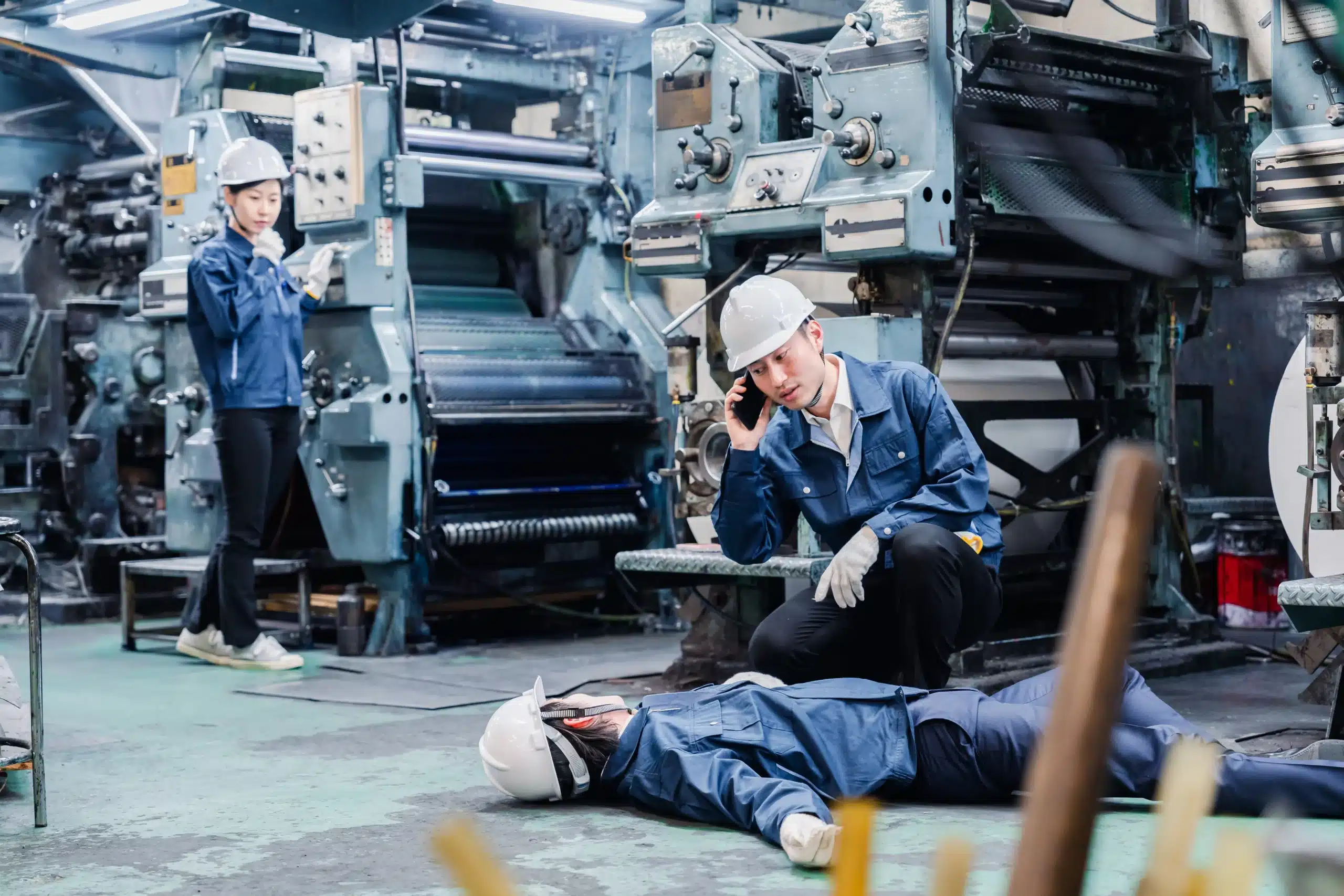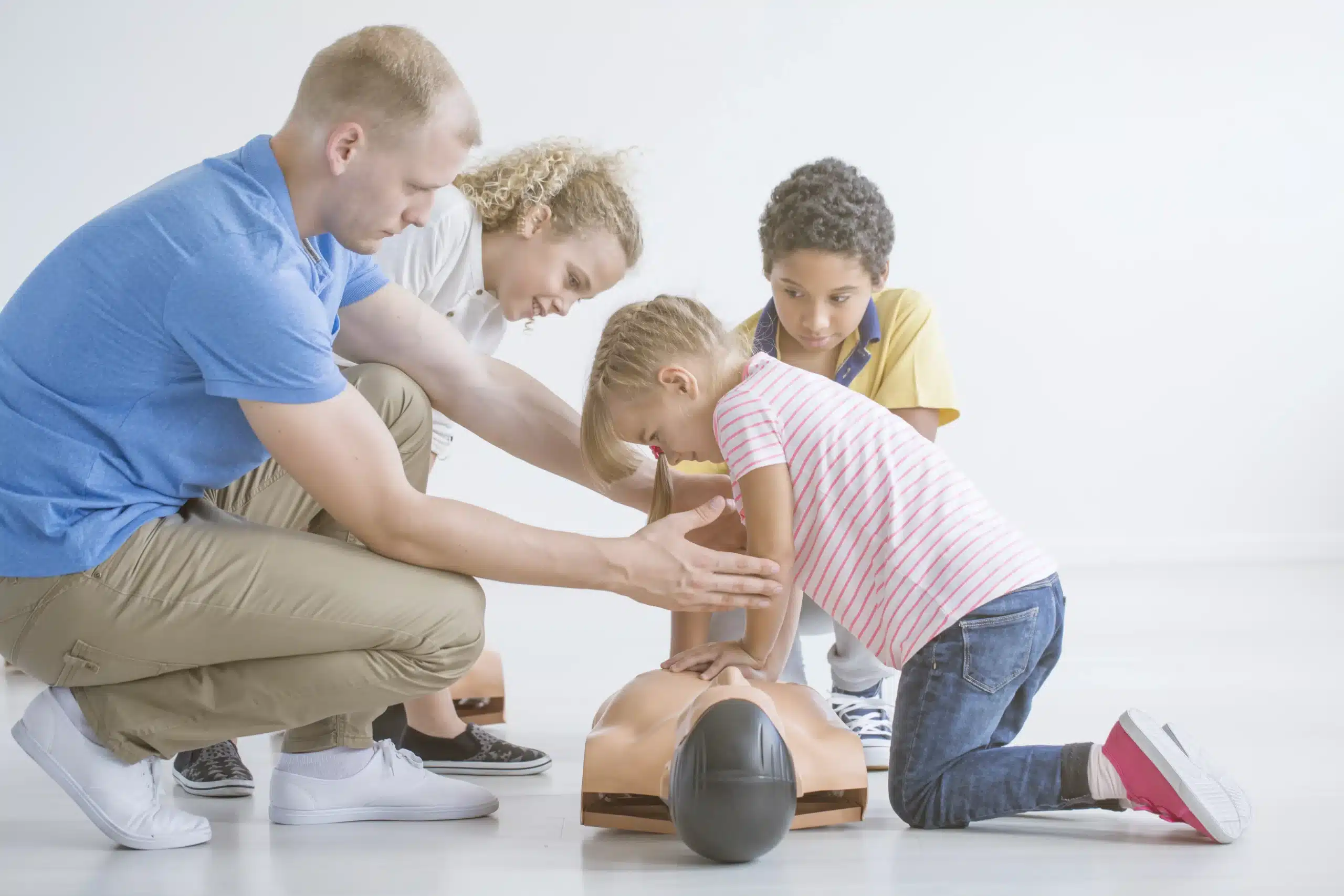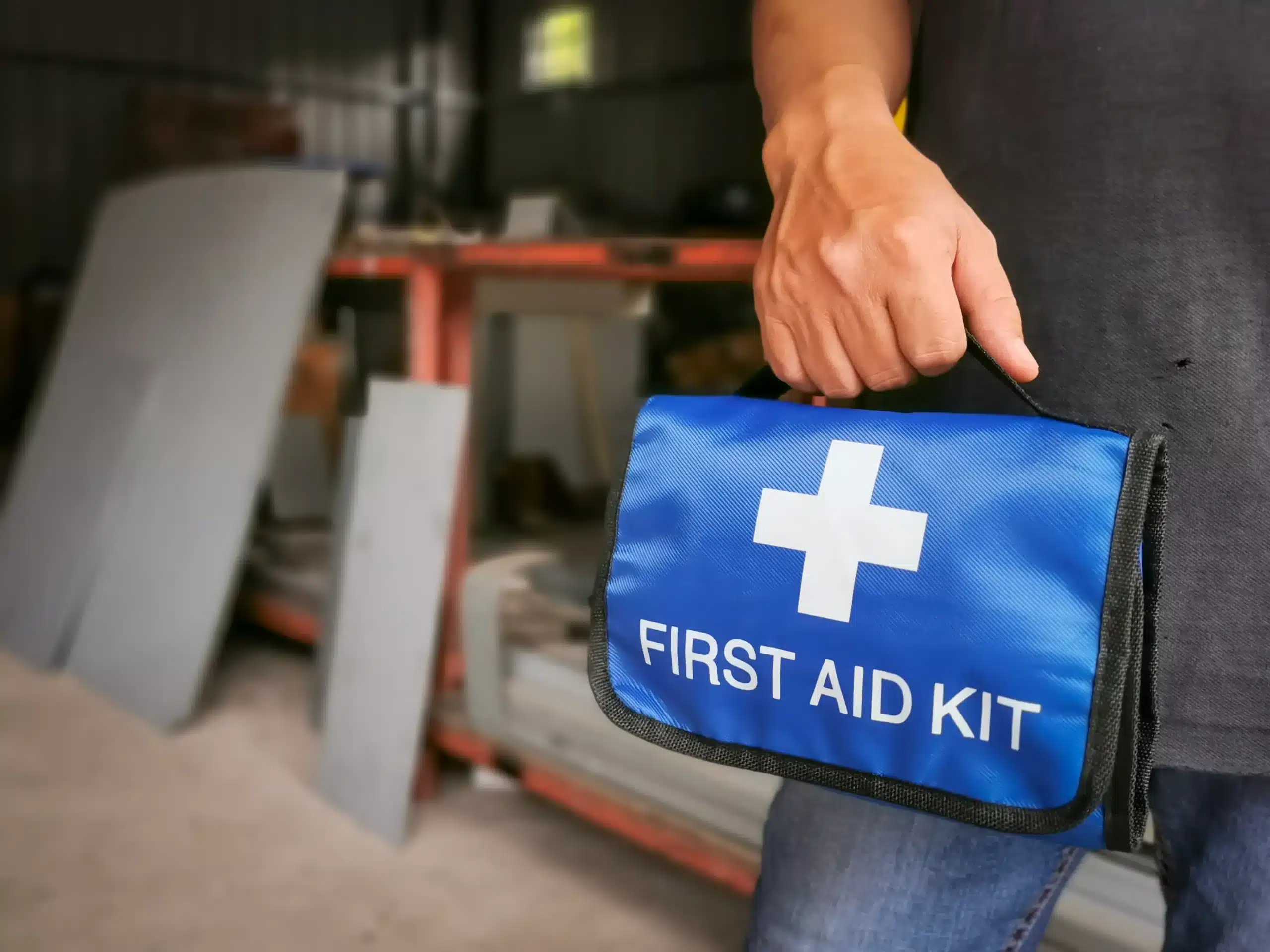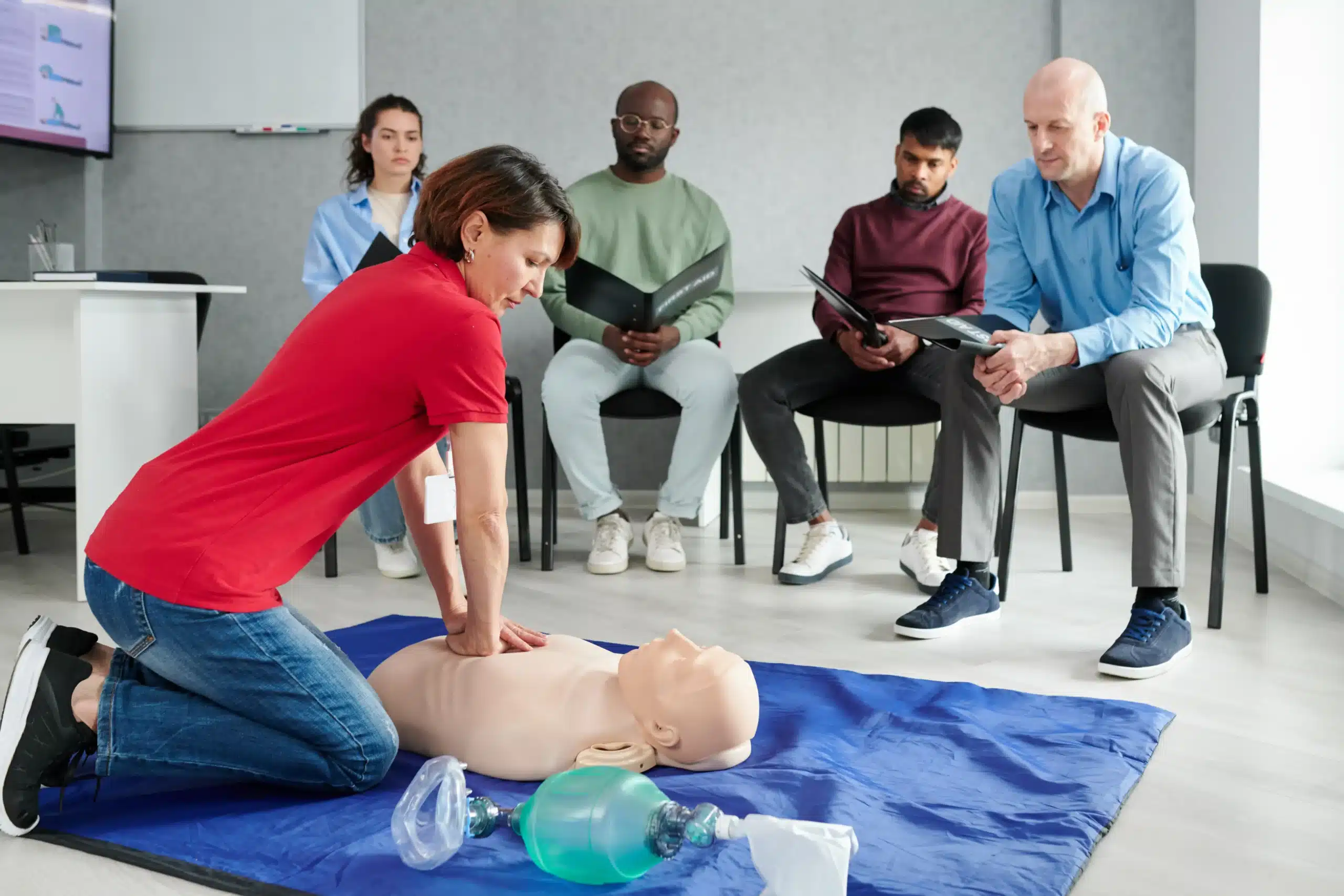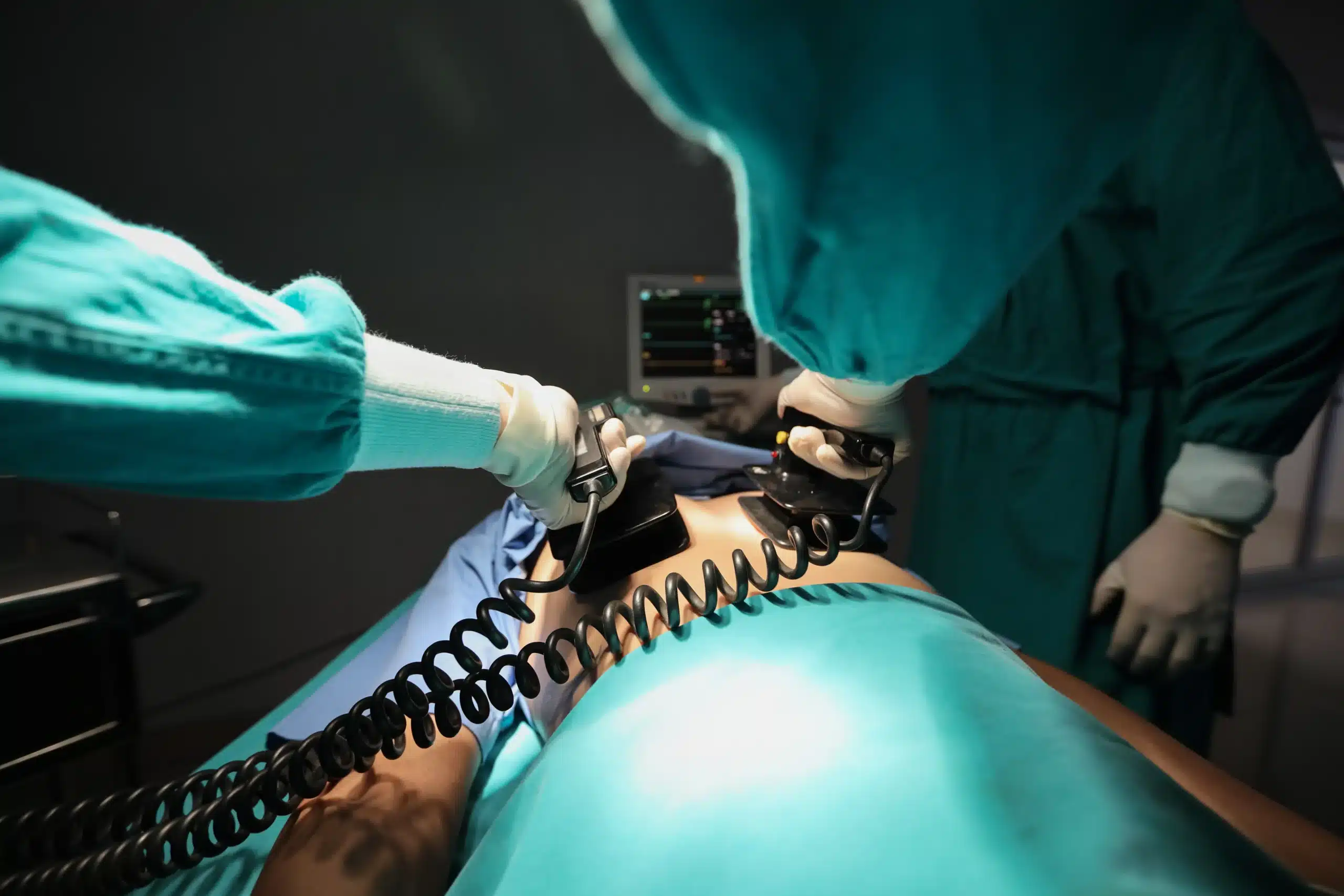Working in healthcare, education, or even just being an active member of your community often means being prepared for the unexpected. Medical emergencies can happen anytime, anywhere, and knowing how to respond effectively can be truly life-saving. BLS certification in San Jose provides the training you need to confidently handle these situations. This comprehensive guide covers everything from the basics of CPR to using an AED and understanding the latest emergency care guidelines. Whether you’re a seasoned healthcare professional, a concerned parent, or simply someone who wants to be prepared, we’ll explore the value of BLS certification in San Jose, helping you find the right course, understand the costs, and ultimately gain the skills that can make a real difference in someone’s life.
Key Takeaways
- BLS certification provides essential lifesaving skills: It equips you to handle emergencies like cardiac arrest, respiratory distress, and choking, going beyond basic CPR to include AED use and airway management. Find a course that fits your schedule and learning style.
- The right BLS course prepares you for real-world scenarios: Look for training that aligns with the latest guidelines from organizations like the AHA, includes hands-on practice, and is taught by experienced, certified instructors. Consider factors like cost, location, and schedule when choosing a provider.
- Maintaining your BLS skills is an ongoing commitment: Renew your certification every two years and stay informed about updates to guidelines and best practices. Regularly reviewing your skills ensures you’re always ready to respond effectively in an emergency.
What is BLS Certification & Why Do You Need It?
Basic Life Support (BLS) certification equips healthcare providers with the skills to respond to life-threatening emergencies. It goes beyond basic CPR to include a broader range of techniques, like using an automated external defibrillator (AED) and relieving choking. BLS certification focuses on team dynamics and high-quality CPR for adults, children, and infants, making it essential for healthcare professionals. This certification demonstrates a commitment to patient safety and high-quality care and is often a requirement for employment in many healthcare settings.
BLS Certification Myths
Several myths surround BLS certification. Some believe it’s only for doctors and nurses, but many professions benefit from these lifesaving skills. Another misconception is that it’s too time-consuming. While comprehensive, BLS courses are designed to be efficient and manageable. Some also mistakenly think CPR training is sufficient. BLS certification builds upon CPR, adding essential skills like AED use and airway management. Finally, the credibility of online BLS certification is sometimes questioned. However, many reputable organizations offer online programs that meet the same standards as in-person training. It’s also important to remember that BLS certification isn’t a one-time thing; staying current with the latest guidelines requires regular renewal.
How You’ll Use BLS Skills
BLS skills are invaluable both inside and outside the hospital. As a healthcare provider, you might use these skills in emergencies like cardiac arrest, respiratory distress, or choking. But BLS training also prepares you for real-life situations outside of work. You could be the first responder to a family member experiencing a medical emergency, a colleague collapsing at the office, or a stranger needing help in a public place. Having BLS training means you can confidently step in and provide assistance until professional help arrives. For more information on our training programs, visit our CPR classes page.
Latest BLS Guideline Updates
The guidelines for BLS are regularly updated to reflect the latest scientific evidence and best practices. Organizations like the International Liaison Committee on Resuscitation (ILCOR) review and update these guidelines, ensuring that BLS training remains effective and relevant. Recent updates have focused on improving ventilation techniques during resuscitation and adapting training methods for virtual learning environments. Staying informed about these updates is crucial for maintaining your BLS certification and providing the highest quality care. You can find more information on the latest guidelines from the American Heart Association.
Where to Get BLS Certified in San Jose
Finding the right BLS certification course can feel overwhelming with so many options. This section breaks down some of the leading providers in San Jose and surrounding areas, highlighting their strengths and offerings.
American Heart Association
The American Heart Association (AHA) sets the gold standard for BLS training. They don’t directly offer courses, but authorize training centers like Safety Training Seminars to deliver their curriculum. Look for an AHA-authorized BLS course to ensure you receive high-quality instruction aligned with the latest guidelines. These courses cover essential skills like CPR, AED use, and airway management for adults, children, and infants.
Safety Training Seminars
Safety Training Seminars is a woman-owned, AHA-authorized Training Center conveniently located in Sunnyvale. They offer a full range of AHA courses, including BLS, ACLS, PALS, and First Aid. Serving Sunnyvale, Santa Clara, and San Jose, their central location makes them a practical choice for those in the South Bay. They offer competitive pricing and flexible scheduling, with classes available seven days a week. Learn more on their BLS course page.
American Red Cross
The American Red Cross is another reputable organization offering BLS certification in San Jose. Their courses use real-world scenarios to prepare you for diverse emergency situations. While not AHA-authorized, Red Cross BLS certification is widely accepted. This might be a good fit if their course format or schedule works better for you.
Local Hospitals & Medical Centers
Many hospitals and medical centers in San Jose offer BLS certification courses, often designed for their staff’s needs. These courses may offer specialized training relevant to the hospital setting. Check with local hospitals like Kaiser Permanente, Stanford Health Care, or Valley Medical Center for more information on their BLS training.
Sunnyvale CPR Classes
For AHA-compliant BLS training with a focus on affordability and convenience, Sunnyvale CPR Classes is a great option. They provide the same high-quality AHA curriculum as larger institutions, often at a lower price. Their commitment to the local community makes them a valuable resource for individuals and groups seeking BLS certification in Sunnyvale, Santa Clara, and San Jose. Discounts are available for group classes. For a low-price guarantee, visit their guarantee page.
BLS Certification: Costs & Value
Getting BLS certified is an investment in your skills and ability to respond to medical emergencies. Let’s break down the costs associated with BLS certification in San Jose, explore factors that influence pricing, and discuss how to avoid hidden fees. Most importantly, we’ll look at why this training is so valuable.
San Jose Price Range
BLS certification courses in San Jose typically range from $70 to $100. For example, a 3.5-hour American Heart Association BLS Provider course can cost around $70. Prices can vary based on the training provider and the type of course you choose. AllCPR San Jose offers both Red Cross and American Heart Association courses, giving you flexibility in choosing a certifying organization. Sunnyvale CPR Classes offers a low price guarantee for classes in Santa Clara County. Be sure to compare options to find the best fit for your needs and budget.
Factors Impacting Cost
Several factors can influence the cost of BLS certification. The certifying organization (American Heart Association, Red Cross, etc.) plays a role, as does the course format. In-person training sometimes includes additional costs for materials, while online or blended learning options might have different pricing structures. Consider whether the course includes supplementary materials or resources. Don’t let cost be a barrier—explore affordable options like those at Safety Training Seminars.
Hidden Fees to Avoid
When researching BLS courses, look out for potential hidden fees. Some providers might charge extra for required manuals, certification cards, or online access codes. Before committing to a course, clarify exactly what’s included in the advertised price to avoid unexpected expenses. Transparency is key! Ask about any additional costs upfront so you can accurately budget for your BLS certification.
Long-Term Benefits of Certification
While there’s an initial cost for BLS certification, the long-term benefits are significant. A BLS certification is typically valid for two years. This credential demonstrates your commitment to patient safety and can enhance your career prospects, especially in healthcare, education, and fitness. BLS training equips you with life-saving skills and the confidence to act in critical situations. It’s an investment that pays off by preparing you to make a real difference. Consider it a valuable asset in your professional toolkit and a contribution to a safer community.
Course Length & Formats
Finding the right BLS course means considering several factors, including the course format and schedule. Let’s explore the different options available for BLS certification in San Jose.
In-Person Training
Traditional in-person BLS training offers a hands-on learning experience. These courses typically involve lectures, demonstrations, and practice sessions. A standard BLS certification class takes around 4.5 hours. This format allows direct interaction with instructors and provides real-time feedback.
Online Courses
Online BLS courses offer flexibility and convenience, allowing you to learn at your own pace. However, it’s important to note that online-only certifications aren’t always accepted by hospitals and healthcare facilities, which often require a hands-on skills assessment. If you choose an online course, ensure it aligns with your workplace requirements or desired certification body.
Blended Learning
Blended learning combines online learning with in-person skills sessions. The Red Cross provides blended learning options for BLS certification, which typically involve 1–2 hours of online coursework and 2–3 hours of in-person training. This format suits those with busy schedules who still want hands-on practice.
Flexible Scheduling
Many training centers offer flexible scheduling to accommodate various needs. You can find BLS classes offered daily, including weekends, with various time slots available. This makes it easier to fit BLS training into your schedule. Be sure to check with specific training providers in San Jose for their current scheduling options.
Key BLS Skills You’ll Learn
BLS certification equips you with life-saving skills applicable in various emergencies. Here’s a glimpse at what you’ll learn:
High-Quality CPR (Adults, Children, and Infants)
High-quality CPR is the cornerstone of BLS. You’ll master the techniques for performing CPR on adults, children, and infants, including proper hand placement, compression depth, and rate. This training ensures you can respond effectively to cardiac arrest situations, giving you the confidence to act quickly and efficiently. For more detailed information, explore these BLS CPR certification classes.
AED Use
Automated External Defibrillators (AEDs) are crucial in cardiac arrest scenarios. Your BLS training will cover proper AED operation, giving you hands-on experience with this life-saving device. Knowing how to use an AED can dramatically increase the chances of survival. Find AHA BLS CPR certification classes to learn more.
Choking Relief
BLS training also addresses choking emergencies. You’ll learn techniques like the Heimlich maneuver to relieve choking in both adults and children. This skill is essential for preventing asphyxiation and can make a critical difference. Consider reviewing these common misconceptions about BLS for a deeper understanding.
Emergency Team Dynamics
Effective teamwork is paramount during resuscitation efforts. BLS training emphasizes communication and coordination within an emergency response team. You’ll learn how to work cohesively with others, ensuring everyone understands their roles and responsibilities during a high-pressure situation. The latest BLS guidelines provide further information on team dynamics.
Find the Right BLS Course
Choosing the right BLS course is crucial for mastering these lifesaving skills. Here’s what to consider when making your decision:
Healthcare Provider vs. Layperson Courses
First, determine which type of BLS course you need. BLS certification is designed for healthcare professionals, like doctors, nurses, paramedics, and other first responders. It covers a broader range of skills than standard CPR training for the general public, including advanced techniques for cardiac arrest, respiratory distress, and airway obstructions. If you’re a healthcare provider, make sure you enroll in a BLS course specifically designed for healthcare providers, such as the American Heart Association BLS course offered by Safety Training Seminars. If you’re not a healthcare provider, a standard CPR/First Aid course might be more appropriate.
Evaluating Course Resources
Not all BLS courses are created equal. Look for courses that use up-to-date materials and align with the latest American Heart Association guidelines. A quality course will cover essential skills like high-quality CPR for adults, children, and infants, AED use, and relief of choking. Check if the course provider offers resources like manuals, videos, or online practice tests to reinforce your learning. For healthcare professionals needing to renew their certifications, consider the RQI program for a flexible and convenient option.
Instructor Qualifications
Your instructor’s expertise directly impacts how well you learn these critical skills. Choose a course led by certified instructors with extensive experience in healthcare and emergency situations. Ask about their credentials and teaching style to ensure they can provide clear instruction and personalized feedback. Safety Training Seminars instructors are highly qualified and experienced, committed to providing the best possible training.
Hands-on Practice
BLS skills require practical application. A good BLS course emphasizes hands-on training, including realistic simulations and practice scenarios. This allows you to develop muscle memory and confidence in performing these skills under pressure. Ask about the ratio of students to instructors and the amount of time dedicated to hands-on practice when evaluating different courses. Look for smaller class sizes that allow for more individual attention and feedback. Group discounts are available at Safety Training Seminars, making it an affordable option for families, businesses, or groups of friends. We also offer a low price guarantee, ensuring you receive high-quality training at the best possible price.
BLS Certification Benefits by Profession
BLS certification equips people with the skills to respond to medical emergencies, but its value varies by profession. Let’s explore how BLS certification specifically benefits different career paths.
Healthcare Workers & Medical Students
For healthcare workers and medical students, BLS certification is often a job requirement, providing foundational skills to deliver immediate care during cardiac arrest, respiratory distress, and other emergencies. This training emphasizes patient safety and contributes to improved survival rates. A strong BLS foundation helps healthcare professionals provide high-quality care and builds confidence. For medical students, BLS certification demonstrates a commitment to patient well-being and prepares them for clinical practice. The American Heart Association offers resources on BLS courses for healthcare providers. For those in Sunnyvale, Safety Training Seminars provides a range of BLS courses.
First Responders
First responders, such as EMTs, paramedics, firefighters, and police officers, frequently encounter life-threatening situations. BLS certification is crucial, enabling them to administer immediate, life-saving care before advanced medical help arrives. BLS training goes beyond basic CPR, covering airway management, oxygen administration, and recognizing cardiac arrest. These skills are essential for first responders to manage emergencies and improve patient outcomes. The Red Cross details the differences between BLS and CPR certification.
Childcare Providers & Educators
Working with children carries a significant responsibility for their safety. BLS certification empowers childcare providers and educators to respond effectively to emergencies, including choking, allergic reactions, and injuries. Knowing CPR and first aid can make a critical difference in a child’s survival and recovery. BLS training also emphasizes prevention and safety measures, creating safer environments for children. Those seeking local training can explore options like Sunnyvale CPR Classes.
Fitness Professionals & Coaches
Fitness professionals and coaches guide clients through physical activities, sometimes pushing them to their limits. BLS certification provides the skills to respond to medical emergencies that might arise during training, such as sudden cardiac arrest, asthma attacks, or injuries. Having a certified professional present can significantly increase the chances of a positive outcome. BLS training also equips fitness professionals to recognize warning signs and take preventative measures. The Red Cross offers BLS certification courses.
Community Members
While not always required for employment, BLS certification is valuable for any community member. Knowing CPR and basic first aid empowers individuals to respond effectively during emergencies, potentially saving lives. BLS training can also increase confidence and reduce anxiety in emergencies. Whether assisting a family member, a stranger, or even a pet, BLS skills can make a real impact. Consider checking for local courses offered by organizations like Safety Training Seminars in Sunnyvale. For more general information, Medtigo discusses common misconceptions about BLS.
Renew Your BLS Certification
Your BLS certification is a critical credential, showing you’re ready to respond to medical emergencies. Like most certifications, it has an expiration date. Staying current with the latest guidelines ensures you’re prepared to provide effective care. This section covers everything you need to know about renewing your BLS certification.
Renewal Requirements
BLS certification is typically valid for two years. To maintain your credentials, complete a renewal course before your current certification expires. Many organizations, like the American Red Cross, recommend enrolling in a renewal course within 30 days of the expiration date. This timeframe lets you seamlessly transition to your renewed certification without a lapse in your qualifications.
Continuing Education
BLS guidelines are periodically updated to reflect the latest research and best practices in resuscitation. After your initial certification expires, taking a renewal course is essential. These courses cover any updates to the guidelines since your last certification, ensuring your skills and knowledge align with current standards. Resources like ProTrainings offer detailed information on guideline changes.
Staying Up-to-Date
Staying informed about changes in BLS guidelines is crucial for providing effective care. Organizations like the ILCOR (International Liaison Committee on Resuscitation) regularly review and update these guidelines, often every five years. These updates can include revisions to CPR techniques, ventilation methods, and other essential procedures. For example, the 2020 BLS guidelines included important updates on ventilation techniques during resuscitation. Resources like Vitali Partners offer insights into recent changes, including those related to virtual training. By staying informed and renewing your certification, you contribute to a higher standard of care.
Prepare for Your BLS Course
Getting ready for your BLS course involves some prep work—both mental and physical—and gathering a few essentials. Knowing what to expect and how to prepare can make your training more effective and less stressful.
Pre-Course Study Materials
The American Heart Association’s Basic Life Support (BLS) certification equips healthcare professionals with the skills to handle cardiac emergencies. Sunnyvale CPR Classes offers AHA BLS courses covering essential techniques like CPR, using an AED, and airway management. While pre-course study isn’t always required, reviewing these topics beforehand can give you an advantage. Check with your course provider about recommended resources.
What to Bring to Training
Your BLS training combines instruction and hands-on practice. Wear comfortable clothing, as you’ll be actively participating in demonstrations and simulations. Bring a notebook and pen for notes and questions. A water bottle is also recommended to stay hydrated. Sunnyvale CPR Classes offers convenient daily courses to fit your schedule.
Mental & Physical Prep
BLS certification requires a time commitment, so plan accordingly. Reviewing the 2023 BLS guidelines beforehand can be helpful. Get a good night’s sleep before your training and arrive ready to learn. The skills you gain could save a life, so approach the course with focus and a positive attitude.
BLS Certification Discounts in San Jose
Getting BLS certified is a smart move, but saving money is always welcome. Thankfully, several discounts and cost-saving opportunities are available for BLS certification in San Jose. Knowing where to look can make a real difference.
Group & Corporate Discounts
If you need to certify a team, explore group discounts. Many training centers, like Safety Training Seminars, offer reduced rates for groups. This is a great option for businesses training multiple employees or for groups of friends certifying together. Even a small discount per person adds up for larger groups.
Promotions & Limited-Time Offers
Keep an eye out for limited-time promotions. Training providers often run special offers, sometimes seasonally or for early registration. Check the websites of various CPR training centers in San Jose regularly. You might be surprised at the savings.
Student & Military Discounts
Students and military personnel often qualify for discounts on BLS certification. These discounts recognize the contributions of these groups and make training more accessible. If you’re a student or military member, ask the training center about their discounts. You could be eligible for a significant price reduction.
Low Price Guarantees
Some CPR training organizations offer low price guarantees, promising to match or beat competitor pricing. Sunnyvale CPR Classes commits to offering the lowest prices in Santa Clara County. A low-price guarantee gives you confidence you’re getting the best possible value.
Related Articles
- Online CPR Classes in Sunnyvale: Your Complete Guide – Sunnyvale CPR Classes
- CPR Certification in San Jose: A Practical Guide – Sunnyvale CPR Classes
- Debunking Common CPR Myths
- Sunnyvale CPR Classes: Your Complete Guide – Sunnyvale CPR Classes
- First Aid Certification Sunnyvale: Your Complete Guide – Sunnyvale CPR Classes
Frequently Asked Questions
Is BLS certification the same as CPR certification? BLS certification builds upon CPR training. It includes CPR but also covers other essential skills like using an AED and relieving choking. BLS also emphasizes team dynamics and high-quality CPR for different age groups. It’s more comprehensive than standard CPR certification.
How long does BLS certification last, and how do I renew it? BLS certification is typically valid for two years. You’ll need to take a renewal course before your certification expires to stay current with the latest guidelines. Renewal courses cover any updates to procedures and ensure your skills are up-to-date.
What if my workplace doesn’t require BLS certification? Is it still worth getting certified? Even if your job doesn’t require it, BLS certification is a valuable asset. These skills can be used in emergencies at home, at work, or in public. Knowing how to respond effectively can make a real difference.
Are online BLS courses accepted everywhere? Not all workplaces accept online-only BLS certifications. Many healthcare settings require a hands-on skills assessment component. If you’re pursuing BLS certification for work, confirm with your employer or the relevant licensing board to ensure the course meets their requirements.
How much does BLS certification cost, and are there ways to save money? BLS certification costs vary, but there are often ways to save. Look for group discounts, promotions, or discounts for students and military personnel. Some training centers also offer low-price guarantees. Compare options to find the best value.
